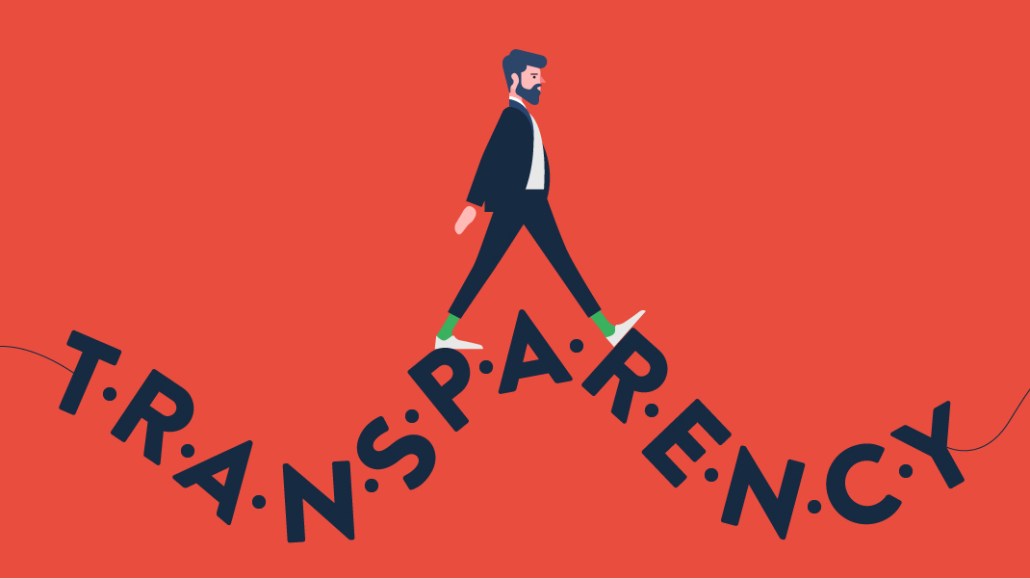Secure your place at the Digiday Media Buying Summit in Nashville, March 2-4
‘There’s a plausible deniability aspect’: Why marketers are sitting on the sidelines in the regulatory fights against big tech

As the war between the largest online media owners and the governments of the world heats up, marketers are notably sat on the sidelines. They learned a long time ago they can’t have their cake and eat it too when it comes to openly fighting these platforms while directly funding them.
Behind the scenes, however, their allegiances are clearer.
The announcement earlier this month that U.S. lawmakers will try and restrict Google’s grip on online searches, over its murkier dominance of online advertising left many advertisers disappointed. A few days later, when CEOs of Facebook Twitter, and Google’s owner Alphabet gathered in front of senators, that disappointment was compounded. The CEOs were there to defend how they moderate content on their platforms, and yet there was little talk of how they provide greater transparency into those processes over the four-hour probe.
For one marketer, the sequence of events summed up what they already knew: Lawmakers, particularly in the U.S., have the right companies, but the wrong diagnosis.
“We’ve been hoping for government intervention for years, but now I’m not so optimistic that will lead to any real change anytime soon,” said the chief media officer at a global advertiser on condition of anonymity.
It’s a damning indictment on the prospects of regulating big tech. No one is sure how to crack a tech monopolist. And depending on what happens next, that opportunity may be lost altogether — at least in the U.S.
“There’s clearly a danger that the regulation of the tech companies in the U.S. could not go well because it’s an extremely politicized topic,” said former Silicon Valley executive Maelle Gavet. “The politicization of the topic could make it impossible to get to a ruling, or even better actual change in legislation.”
That big advertisers are even relying on governments to do what they haven’t been able to do in terms of swaying big tech companies to seriously consider their concerns speaks volumes about the situation they’re in. They’ve long suspected the likes of Google and Facebook have weaved together their technology in anticompetitive ways. There was a time when there was no shortage of marketers queuing up to publicly criticize these practices. Still, the lure of those platforms was too great and drove advertisers to keep funding them against their better judgment.
“We weren’t comfortable with using Google’s technology to buy the inventory it sold to us because we couldn’t be sure they would put our needs before their own,” said the chief media officer at another global advertiser. “That was several years ago, but more of the advertisers I talk to are waking up to that issue. They’re reassessing how much they spend — and it’s definitely not more.”
But as long as online ad spending continues to swell, so too will the platform’s coffers. Accelerated ad revenues for Google, Facebook, and Amazon in the latest quarter are a testament to that. Advertisers talk about pulling their media dollars from those platforms — and some like Heineken have tried — though very few do so completely or permanently. To do so, would mean they’re willing to ditch media channels they know work to varying degrees.
It takes a brave CMO to have a crisis of consciousness during a global pandemic and an economic downturn.
“No marketer is going to be surprised by what’s coming out of these investigations because they’ve known about these problems for years,” said a marketing procurement director. “There’s a plausible deniability aspect to it.”
Governments could still do advertisers a solid. There are multiple investigations in the works that could potentially impact the operation of any major tech company. Whether its Europe or the U.S., it’s clear that policymakers have the dominant technology companies in their sights. If their current attempts to regulate those businesses fizzle it’s clear that they’ll regroup and will try again. It might just take a while longer for those efforts to materialize.
“I’ve sat in meetings where marketers have said they could advertise more on Snapchat or Twitter, but won’t because it’s too much effort to drive the return on investment,” said Gavet. “It creates a self-fulfilling prophecy. When marketers aren’t prepared to dedicate people and budget to those smaller platforms then all they end up doing is feeding the companies they constantly complain about.”
More in Marketing

Thrive Market’s Amina Pasha believes brands that focus on trust will win in an AI-first world
Amina Pasha, CMO at Thrive Market, believes building trust can help brands differentiate themselves.

Despite flight to fame, celeb talent isn’t as sure a bet as CMOs think
Brands are leaning more heavily on celebrity talent in advertising. Marketers see guaranteed wins in working with big names, but there are hidden risks.

With AI backlash building, marketers reconsider their approach
With AI hype giving way to skepticism, advertisers are reassessing how the technology fits into their workflows and brand positioning.








